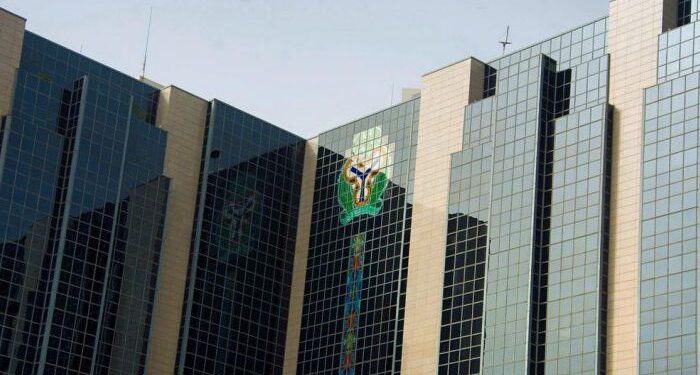Nigeria’s economy may be on the brink of a monetary policy shift as the country records another decline in inflation, sparking optimism among businesses, investors, and households that the Central Bank of Nigeria (CBN) could ease its tight monetary stance in the coming months. The latest figures from the National Bureau of Statistics (NBS) show that headline inflation dropped for the fifth consecutive month, a development that economists believe could create the conditions for a reduction in interest rates, which currently stand at record highs.
The inflation slowdown comes after months of relentless pressure on the economy caused by a combination of subsidy removal, exchange rate volatility, and high energy prices. However, recent stability in the foreign exchange market, steady food supplies due to harvest season, and policy interventions to boost agricultural productivity have contributed to moderating price levels. For millions of Nigerians struggling with the rising cost of living, the easing inflationary pressure is a welcome relief, even if prices remain elevated compared to previous years.

Experts say the CBN’s aggressive tightening of monetary policy since 2023 is paying off. The Monetary Policy Committee (MPC) had raised the Monetary Policy Rate (MPR) several times in response to soaring inflation, pushing it above 26%. This restrictive stance was intended to curb excess liquidity, stabilize the naira, and restore investor confidence. With inflation showing consistent downward movement, analysts argue that the apex bank now has room to reconsider its stance and possibly begin a cycle of rate cuts to stimulate economic growth.
Businesses, especially small and medium-sized enterprises (SMEs), have been vocal about the impact of high borrowing costs on their operations. Access to credit has become increasingly difficult, with lending rates soaring above 30% in some cases. Many firms have scaled down expansion plans, cut jobs, or delayed investments as the cost of financing has become unsustainable. The prospect of lower interest rates, therefore, offers hope for renewed growth in the private sector, which has been described as the engine of Nigeria’s economic recovery.
Investors in the capital market are also closely watching the inflation trend and its implications for monetary policy. The Nigerian Exchange (NGX) has experienced mixed performances in recent weeks, with gains in some sectors offset by losses in others. Analysts note that a shift to accommodative monetary policy would improve liquidity, boost investor sentiment, and drive stronger activity in equities. It could also make fixed-income instruments less attractive, prompting portfolio rebalancing toward riskier assets like stocks.
However, some economists caution that the CBN must tread carefully. While inflation is moderating, it remains in double digits, far above the apex bank’s target band of 6-9%. Any premature easing of monetary policy could reverse recent gains, particularly if food prices rise again due to supply chain disruptions or if global oil market instability triggers renewed currency pressures. Nigeria’s reliance on imported goods, coupled with exposure to external shocks, means the inflation battle is far from over.
The international community is also watching Nigeria’s economic trajectory with keen interest. Multilateral lenders such as the World Bank and the International Monetary Fund (IMF) have praised Nigeria’s reforms, including exchange rate unification and fiscal adjustments, but have warned that maintaining macroeconomic stability will require disciplined monetary and fiscal policies. A carefully managed easing cycle, they argue, could support growth without reigniting inflationary pressures.
Households, meanwhile, are cautiously optimistic. For many Nigerians, the immediate concern is whether lower inflation will translate into tangible relief in markets, supermarkets, and transport costs. While official data shows moderation, many citizens still report high food prices, with staples such as rice, beans, yam, and garri selling well above pre-2023 levels. Experts stress that while falling inflation means the pace of increase is slowing, it does not imply that prices are coming down, only that they are rising at a slower rate.
In the political space, the government has welcomed the inflation figures as evidence that its policies are beginning to yield results. Officials have pointed to interventions in agriculture, efforts to stabilize the naira, and targeted social welfare programs as factors contributing to the trend. The administration insists that sustained reforms will restore confidence in the economy and lay the foundation for inclusive growth.
Looking ahead, the spotlight will be on the CBN’s next MPC meeting, where policymakers will decide whether to maintain the current restrictive stance or begin to cautiously ease. The decision will not only reflect inflationary trends but also consider broader economic indicators such as GDP growth, unemployment, foreign reserves, and fiscal pressures. The private sector is already lobbying for rate cuts, while conservative voices within the financial community argue for patience until inflation falls closer to single digits.
Ultimately, the current inflation trajectory has given Nigeria room for cautious optimism. Falling inflation is rekindling confidence among investors and households that economic stability may be within reach. If the trend continues, Nigeria could witness a gradual transition from stabilization to growth-driven policies, easing the burden on businesses and households while sustaining reform momentum.
The path forward will require careful balancing by the CBN. A misstep could undo months of progress, but a well-calibrated easing of policy could mark the beginning of a new phase in Nigeria’s economic recovery. For now, Nigerians can take comfort in the fact that inflation is finally trending downward, with the possibility that monetary relief may soon follow.
Support InfoStride News' Credible Journalism: Only credible journalism can guarantee a fair, accountable and transparent society, including democracy and government. It involves a lot of efforts and money. We need your support. Click here to Donate
